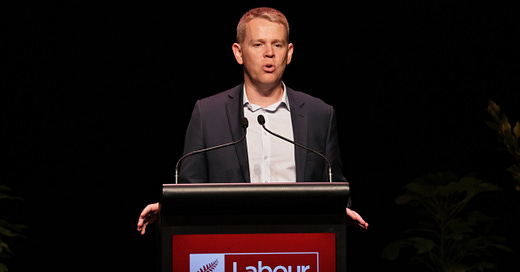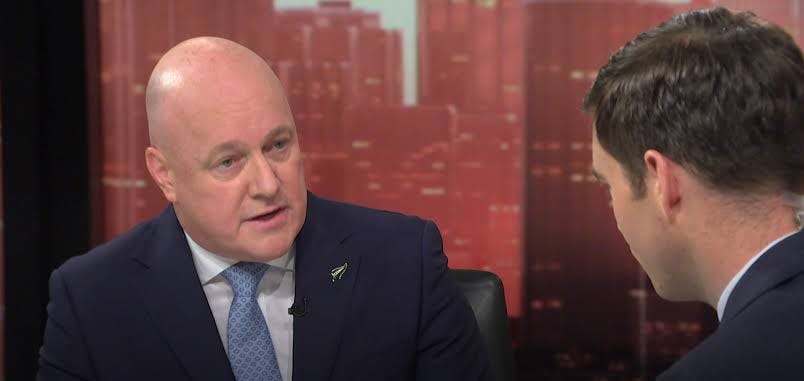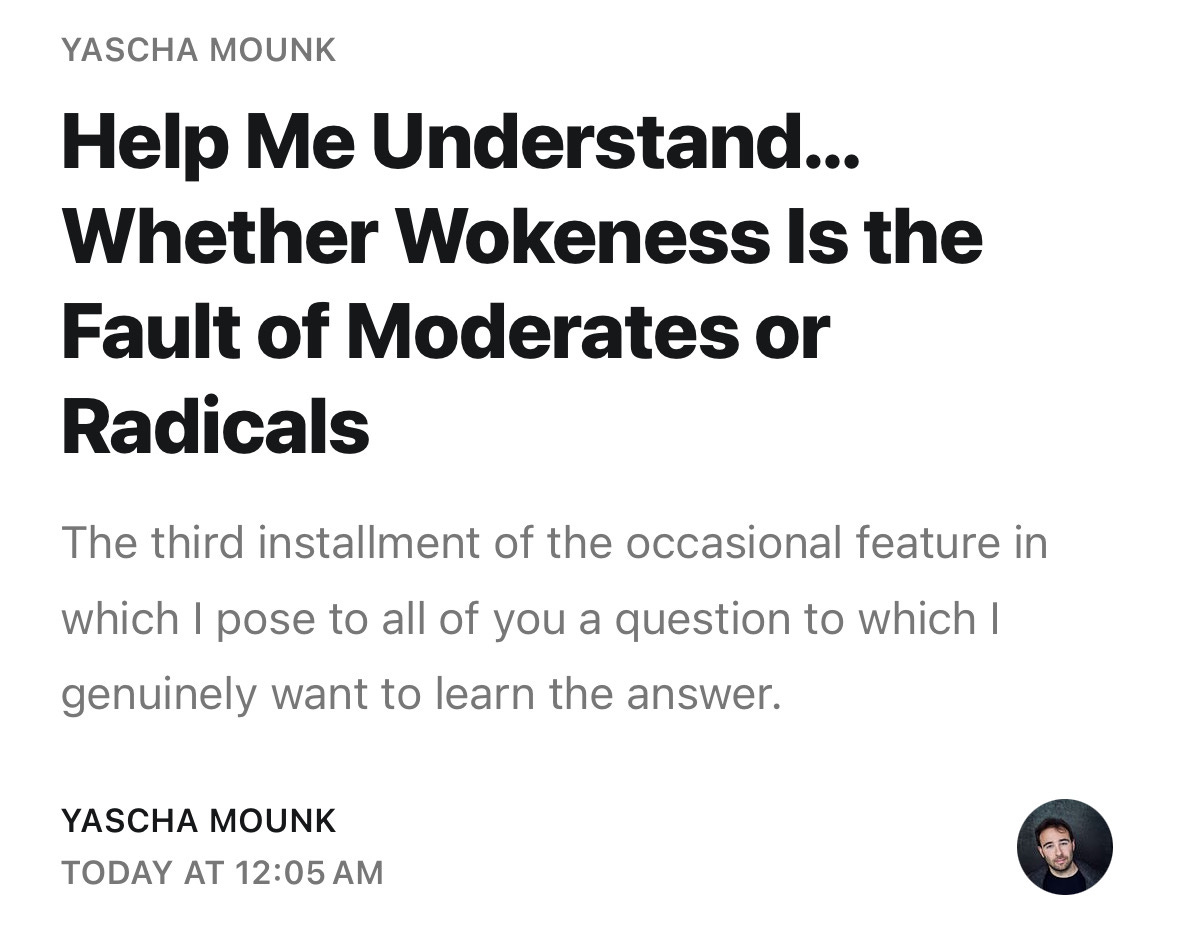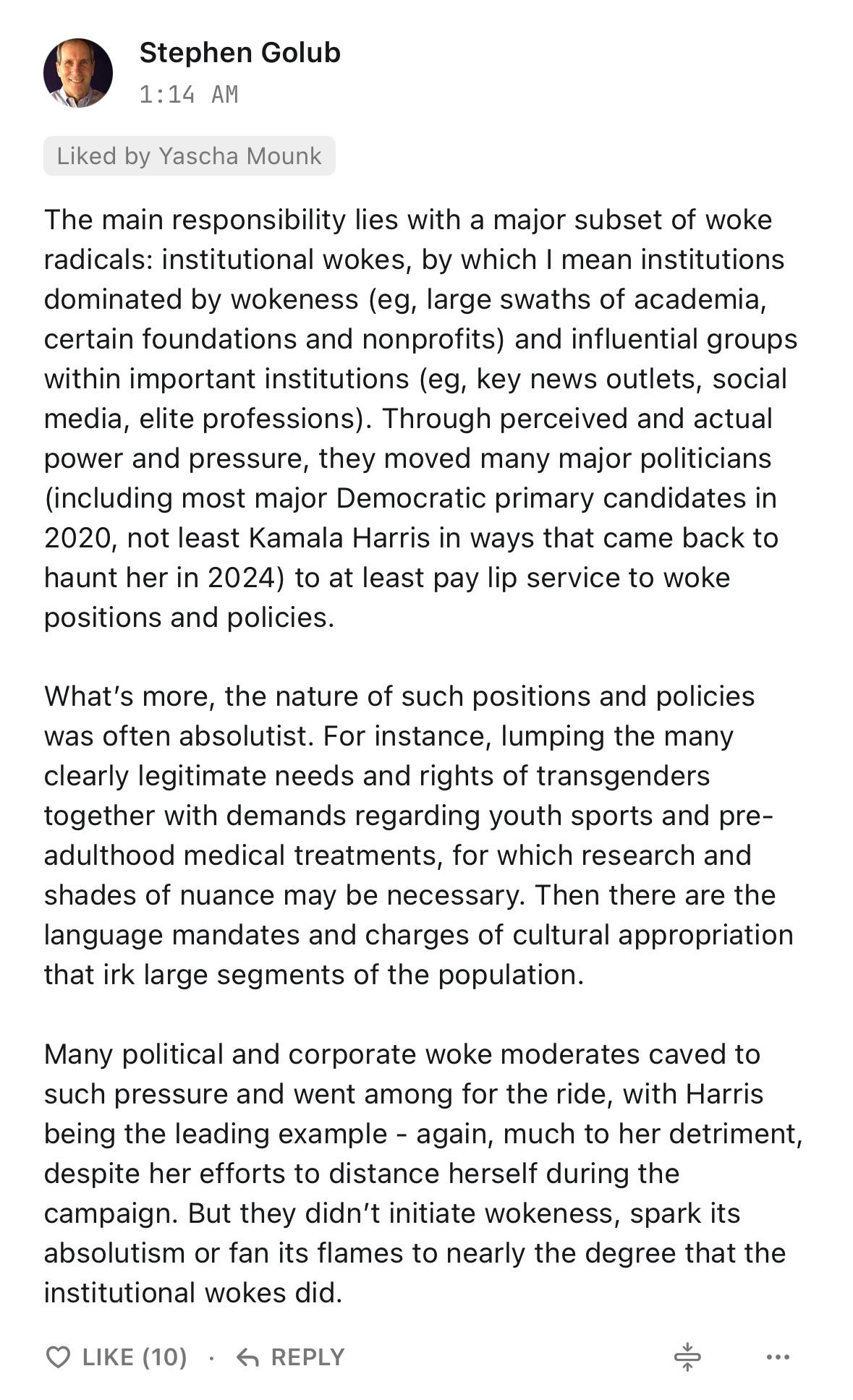Labour 2026, Democrats 2024, and Luxon Accidentally Admits Neoliberalism has Broken the Country
Kia ora kotou, and I hope everyone is having a good start to their week.
Usually I try to be a bit more themed and connected and essay-like in what I write, but it’s been too long since I got anything out at all and the topics I keep meaning to talk about are beginning to pile up. So today I’m borrowing a leaf from (seemingly) everyone else’s newsletters and doing a more casual News Dump.
Chippie (Almost) Gets It
The Labour Party Conference was this weekend, held in Christchurch (which he dutifully remembered to mention has been Roger Douglassed by National), and it started off strong on Friday with Hipkins calling for change from within the Labour Party, in apparent recognition of the mandate they let slip through their fingers their 2020 term. But by the closing speech on Sunday, it had become clear that his concepts of change revolve around doing more of the same old, same old.
National have handed Labour their easiest platform ever for 2026 and Labour seem keen to take it. All they really have to do to secure back votes from the left is to not be National. They can sit there making safe criticisms and rely on the right’s racism and logic-less austerity economics to drive voters back into their arms.
And this would be a terrible mistake.
This kind of easy oppositional placidness is what lost the Democrats their election last month, what lost Labour their election last year, and Chippie would do well to heed the warning that voters laid out quite for him clearly, and that he himself acknowledged they were being signalled when they were voted out in our previous election.
While Hipkins seems to recognise that fruits and vegetables GST was the wrong policy to push, I wonder if he really understands why.
After all, I’m sure it’s not a policy they picked despite an apparent unpopularity with voters; I’m sure when they were passing it around and polling it, it received a lot of surface-level support. But ultimately it doesn’t withstand scrutiny because the change it would create for kiwis is not meaningful, and once it was shredded through the political discourse of the left, it was clear there was nothing really substantial to the policy. As a result, there was no underlying enthusiasm or excitement for a tac cut that only the uninformed believed was “common sense”, while the politically aware recognised it as pandering.
And so it languished a slow and uninspiring death.
People want to pay taxes. Not the people who voted for National obviously, but many of the people voting for Labour and Greens and TMP recognise that tax is not the enemy, just a very hard sell to the working population.
Which is why I don’t understand why Labour isn’t working hard right now on selling it to us. Even as they wreck the economy over it, Luxon and co are painting a very convincing picture of how their austerity budget has pulled money out of the pool and lowered the inflation that Labour created when they upped their spending. How true that is, and how positive National’s actions actually will turn out to be if so, remains to be seen, but Labour is not laying a counter-narrative at all, nor do the media seem interested in setting it up it on their behalf. Jack Tame’s interview with Luxon (below) was one of the few times I’ve seen anyone point out to our Prime Minister that inflation is lowering globally and was already lowering under Labour. Even then, it took Luxon repeating that he’d lowered inflation about fifty times before Tame even bothered to question it.
There are plenty of safe winners in Labour’s policy in terms of signposts that will move us off National’s kamikaze flightpath (yes to Dunedin Hospital, no to AUKUS) and onto something a bit more sensible and stable. But when you add up the results of the policy Chippie commits to and compare that to the trajectory we were on while under them in their last term, it becomes apparent that what he is promising is a return to the route we were reliably tracking when we last voted him out.
“If you vote for Labour,” Chippie promises, “we will undo the awful decisions National has made in the single year they’ve been in government so far and return us to a path of left-wing neoliberalism.”
And in promising that, he has failed to provide the radical and decisive leadership that the left are demanding of him.
So I will spell it out plainly for Labour: Chippie, leftwing voters are tired of trading out one debt-limited government for a slightly-more-evil debt-limited government every 5-10 years. We need economic change; a campaign for election that shifts the needle and takes a firm stance against not just the decisions National is making this term but the entire economic ethos underpinning them. We need a leadership who is willing to make radical and even unpopular change for the promise of a more socially-focussed future in which New Zealanders are supported from cradle to grave, and in so doing you need to paint a vision of the country we can create if we are just willing to commit the resources.
We need a government who can take charge of the economic argument and convince the public that 40 years of low-level austerity hasn’t served the country as well as National keep promising.
Allow me to demonstrate.
Luxon admits neoliberalism has held New Zealand back for 30 years
Finally, finally, our revered leader has returned to grace our television with his interviews after making a point to hide from anyone who might question his decisions (or lack of them) over the past year.
And Jack Tame quickly makes it apparent why Luxon’s been avoiding him.
The entire episode is well worth a watch, but the most interesting part to my rogernomics-hating ears was at 17.35 when Luxon said:
“It’s the biggest problem New Zealand has faced for 30 years. We’ve all been working incredibly hard and we can’t get ahead.”
Take a moment to absorb that. I wish Tame had; he’s like a dog with a bone, like Tova without the confinement of the press pulpit, but given free reign he’ll lock onto a question and not let go, which makes him bad at pivoting to new topics when politicians give genuinely interesting answers to his questioning.
Because let’s break down what Luxon has just said here: for the last thirty years, New Zealanders have been working hard yet are unable to get ahead.
Thirty years takes us back to ‘94, post Ruth Richardson and the mother of all budgets. Things were, and had been for a few years, trending up economically at that point, but only because ‘86-‘92 had been the most painful economic correcting ever conceived of as we recovered from Muldoonism and our subsequent transition to the free market. ‘94 marked a decade exactly since the Lange government came to power and began instituting their neoliberal reforms, and by all rights should have been the part of the promise where New Zealand began experiencing soaring wealth and quality of life improvements to match.
Well, our wealth has benefitted. But have things improved for the average kiwi?
I would hazard Luxon is not the man to answer that, which only makes it more significant that he as a politician and our Prime Minister would highlight this particular time of economic stagnation as the greatest problem New Zealand has been facing in our recent history.
Now that we all agree on this political fact, can all the leaders please actually own up to the real reasons why our economy is strangling our productivity and reveal their detailed plans to meaningfully change that for the country?
Over in America: the left is starting to sound a lot like the right
I saw this shift in the conversation coming.
New Zealand had similar murmurings when Labour lost, although it was immediately shut off by the radical signallings of a right-wing government who won in a three-party coalition by whole 2% of the vote — much like in the US, a decisive victory in an electoral sense but hardly a mandate for change or a total rejection of modern left.
However over here, underhanded murmurings were immediately met by policy so grossly racist and targeted it’s led to New Zealand’s biggest ever protest travelling the country to gather outside Parliament only last month. That the right came so hard so fast for the “identity politics” that supposedly has been overblown recently yet in New Zealand have quite clearly been around and acknowledged for over 50 years made this debate a bit redundant over here. The Toi Tu movement has been a perfect demonstration of organised and united opposition to racist, rights-infringing policies.
The US left are not quite so united in their opposition.
The deconstruction and discourse over the Democrats and their unimaginable loss to fascism incarnate has been vicious, and it has only gotten firmer and more decided in its direction in the nearly full month since Trump’s victory. And now questions like this:
Attract answers like this:
(Just a selection of some of the more popular responses to what was a reasonable polling of an audience.)
I’m sorry, is this 4chan?? Have I wandered back in time ten years and found myself on kiwifarms?
Why does the comment section of my left wing American boomer-demographic writing website suddenly sound like it is being written and upvoted by a bunch of far-right radicals who’ve just this month got themselves upset about gamergate?
Woke is now mainstream, and that’s why politicians like David Seymour can now use dog whistles about “woke food” as an excuse to cut money, nutrition, and appeal from a school lunch programme that was having the sort of impact on education his public-money-to-private-charter-schools pipeline could only dream of.

What do you make of the new discussions of woke stemming from America?
I wish America as a population had the ability to peek outside their own political bubble. Observing politics from NZ makes it very obvious that we do not live on our own isolated island, but that we are instead following a global democratic conversation that is divided by locality and local issues and polled regularly in a rolling wave of international results.
Unfortunately, being the biggest country in the West and the leader of the free world has given America a deserved sense of arrogance that makes them mostly interested in looking inward and leaves them preferring to pay attention to only their own politics. But if they could peek beyond the rage-induced haze of their third Trump election to the state of the world outside it, they’d notice that they’re not on their own in this. The rest of the world are also stuck in our own little hell-cycles of rejecting perfectly banal moderate-left political parties in favour of batshit-insane right radicals.
Okay maybe not EVERYONE is going to that extreme every election — for example, the UK is sitting especially low on the “enthusiasm” metric at the moment, having just entered their disappointing-left section of the spin-wash cycle after getting rid of their personal charismatic clown who also rose to popularity off the back of his controversial opinions broadcast by a massive media company.

Borris Johnson, only one of the UK’s string of disastrous right wing PM’s but certainly the most Trumpian of the list, also fell upwards into the role of leader of the country via the popularity of his personality above less important things like a commitment to truth or sense of personal integrity. Beginning in politics as the EU correspondent, Johnson’s sensationalised headlines about mundane matters brought him an outraged audience that would eventually form the backbone of public support to leave the EU. He never set out to start a xenophobic movement; he was just bored and liked the attention, and was not above willing to lie or exaggerate to entertain himself and his readers. His rhetoric found him an audience of people keen to seize on reasons to be racist; it’s not so much that they were bad people, it’s just that they were happy to scapegoat Europe for the problems that their own economic policies had created.
Their attention fed Johnson’s (and the Conservative’s) ego all through the 2010s, seeing him make regular appearances as the host of a popular tv show and allowing him to craft a cunning but probably-also-somewhat-real bumbling persona that permitted him to shrug off most mistakes and accusations of ill-intent and incompetence as “gaffs” that ultimately seemed to make him more likeable to the general public rather than putting them off him. He was very good at taking credit for the work and ideas of others, and when he got into power, this showed as he proved an ultimately ineffective leader.
If this sounds familiar to you, that’s not a coincidence. Much of the generalisations in this description can be applied to Trump, but there are plenty of connections to make to Luxon, or even to ScoMo, as the same populist right wing politics with no check for quality or integrity mechanisms allow absolutely inept buffoons to be elected as leader of the moderate right over and over again.
Some similarities are more striking than others. Johnson was profited off and promoted by British media mostly owned by the billionaire Barclays Brothers and Rupert Murdoch, whereas Trump’s Apprentice was owned by a subsidiary of a Mohn company, whose prominence in traditional publishing and new media date back to 1800s Germany. (They also happened to play a significant role in the Nazi regime in the 40s — yikes.)
That media superpowers should so regularly churn out or give way to the desires of these dominating and corrupt characters should not be a surprise, but an indication of the concessions cowards and fascists are willing to give businesses and wealthy supporters as a means of gaining their power. Of course, in Britain, as in New Zealand, this isn’t so much called ‘fascism’ as ‘being part of the establishment’ or ‘boosting business’.
Or as Shane Jones sees it, a free dinner.
[As a side note, Yascha Mounk is published by Penguin, which is also owned by Mohns. This year he year was dropped from the Atlantic due to rape accusations that seem to remain unresolved. Presented without comment.]
It’s alarming to watch America turn inwards over this election, just as the UK did with Brexit and New Zealand did during the pandemic. We seem to use these moments to withdraw from both the world and from each other, becoming divided and swallowing whatever excuses for rage our phones see fit to show us as we scroll through our day.
Tucked at the bottom of Mounk’s comment section are many people counselling unity and forward thinking. In the spirit of the Toi Tu movement, I urge everyone to continue to strive to consider what was can achieve when we work together rather than when we allow ourselves to be divided.
And some words of support in case America is at all paying attention: keep holding your politicians to the grindstone. Don’t let them take the easy route out, like ours are currently trying to do.
Nga mihi nui ki a koe to all who read and support.















At last a clear set of comments that Labour need to take to their caucus and ram it down if we are to ever break the neoliberal stranglehold on our politics. I’m too old (75) to commit to activism on the streets again. We need to convince Labour to get the younger generations on board and quickly. The messaging needs to well targeted. My big fear is whether Chippy is the man for this.
Great analysis of Hipkins and Labour Party conference Sapphi! We are in danger of becoming a country where the only enacted policies are band-aid that can be ripped off by successive governments. Labour squandered a unique opportunity in their last term and managed to alienate a sizeable chunk of the country with overbearing lockdowns that I suspect many voters will NEVER forgive them for. A fairer taxation system should be as basic an agenda as any promises to rebuild this or that, because without a revenue stream hitting the ultra rich in this country Labour will always end up targeting middle New Zealand for their fiscal needs, and that demographic has been bled dry for too long! As for America..........